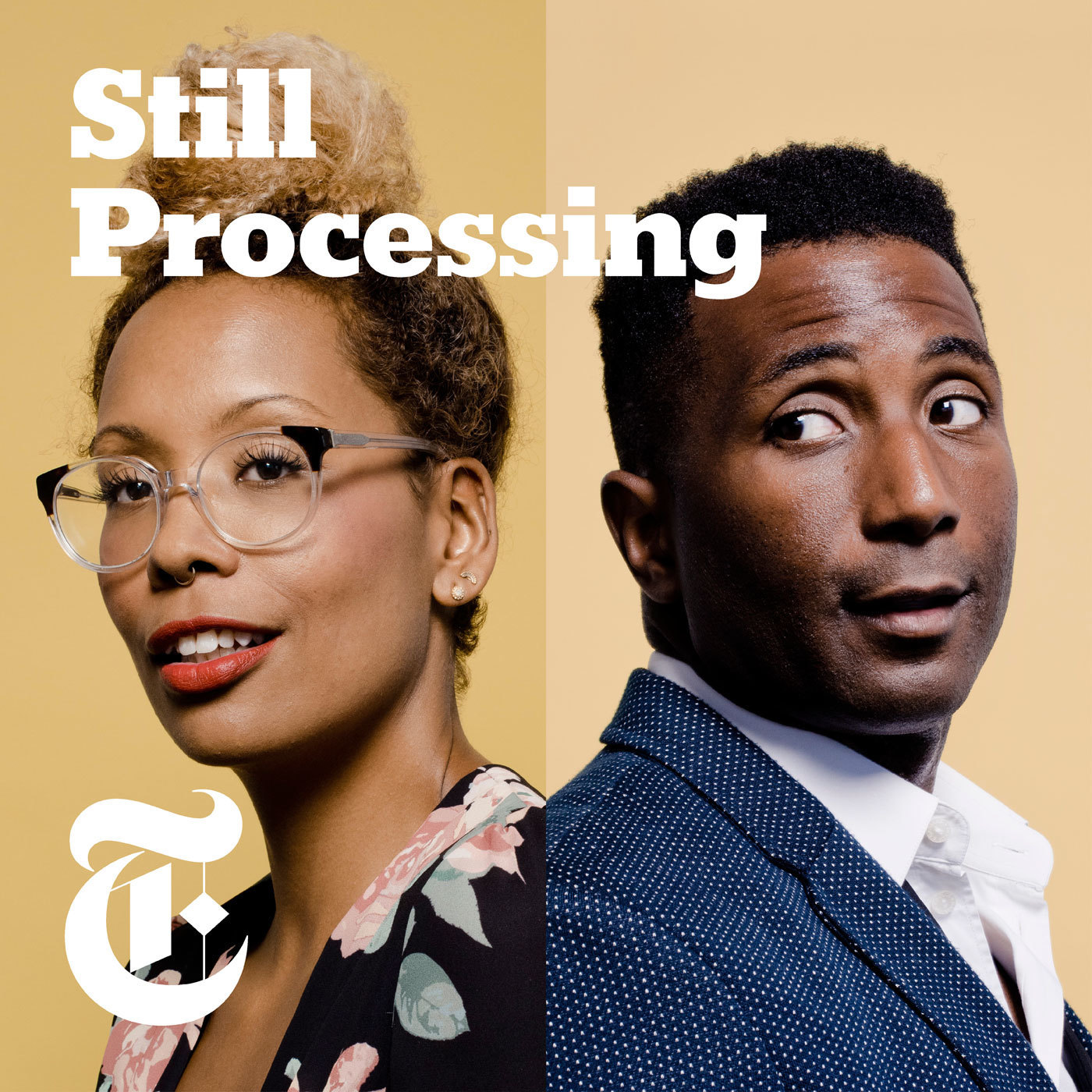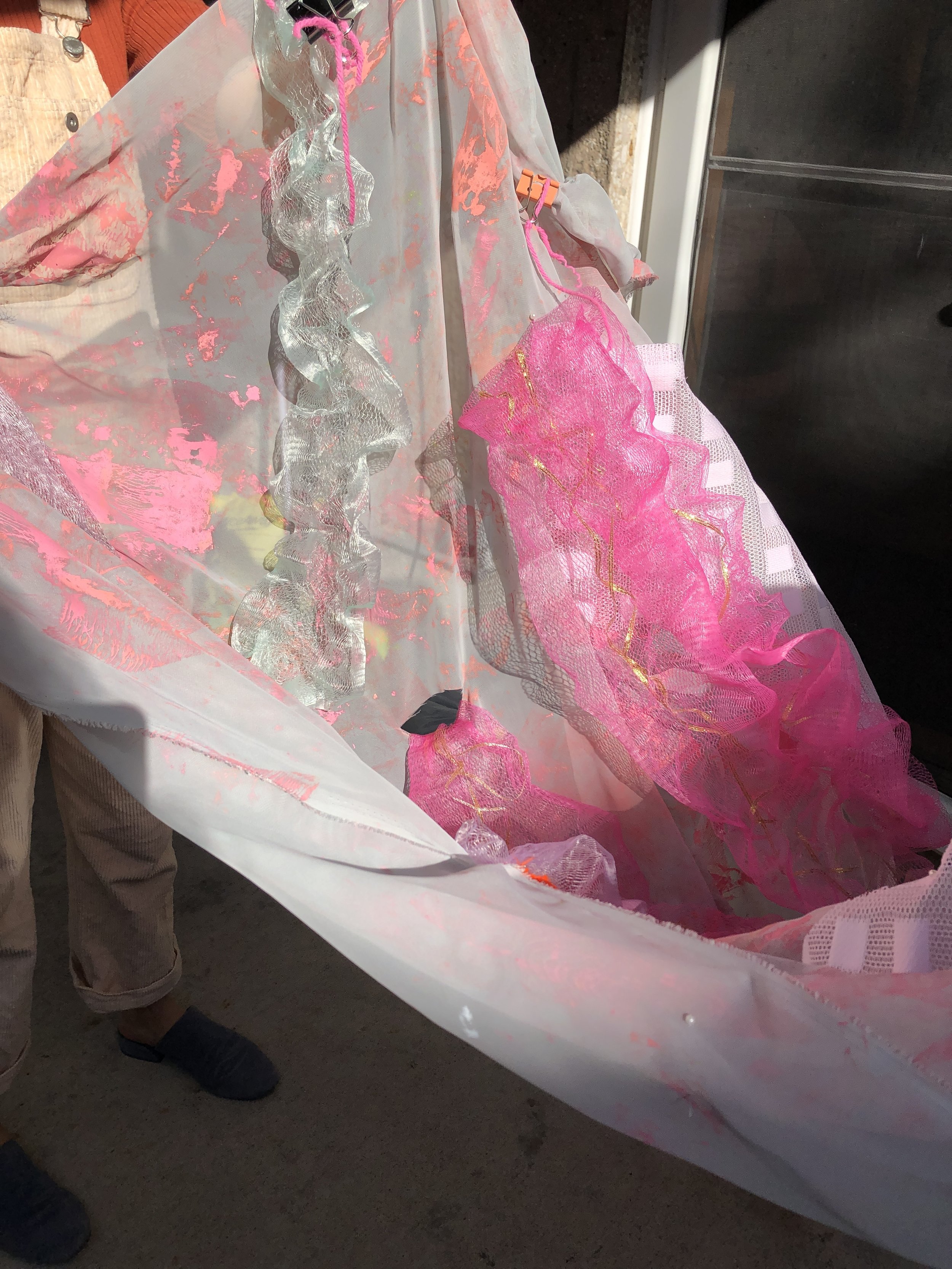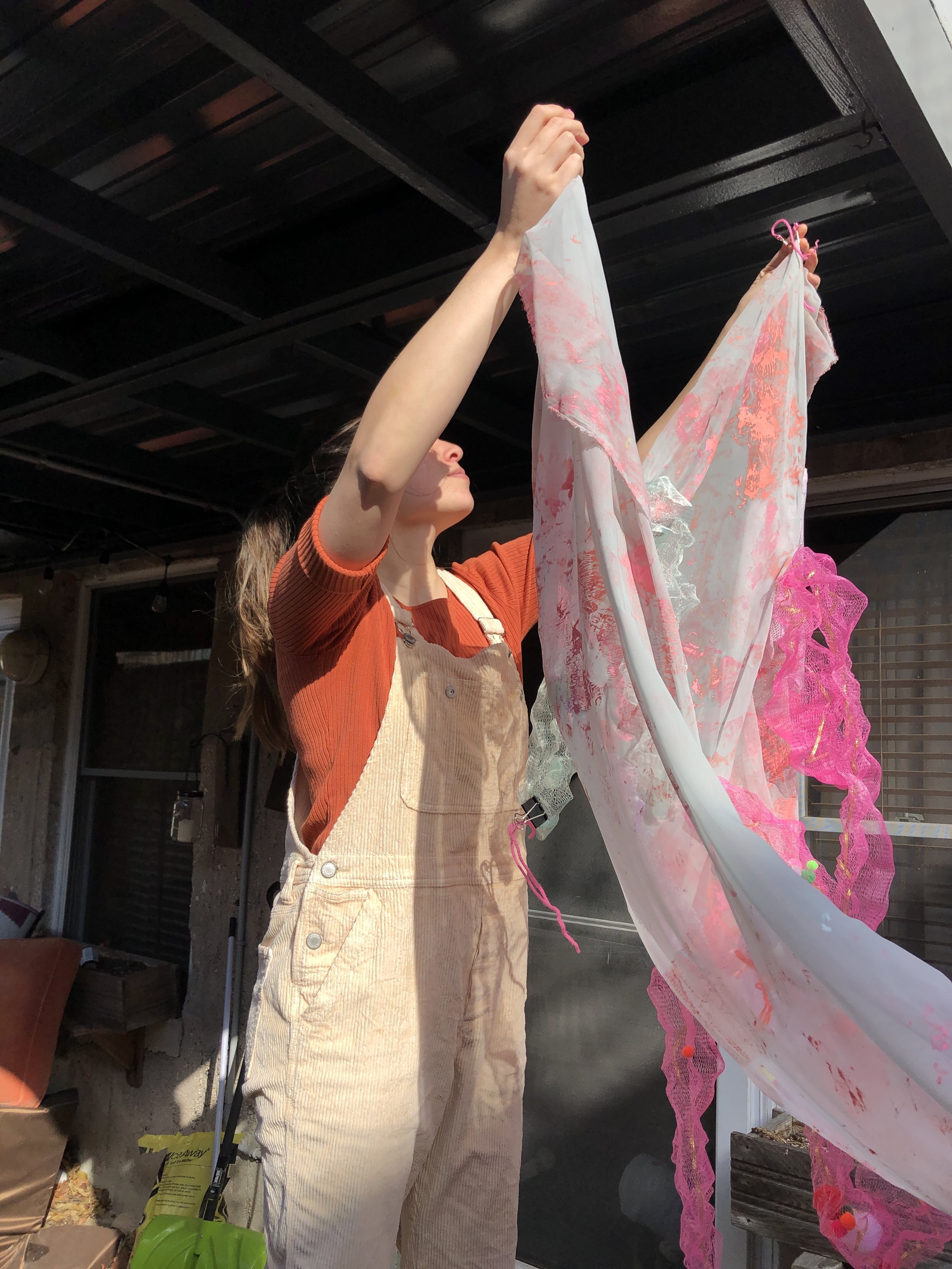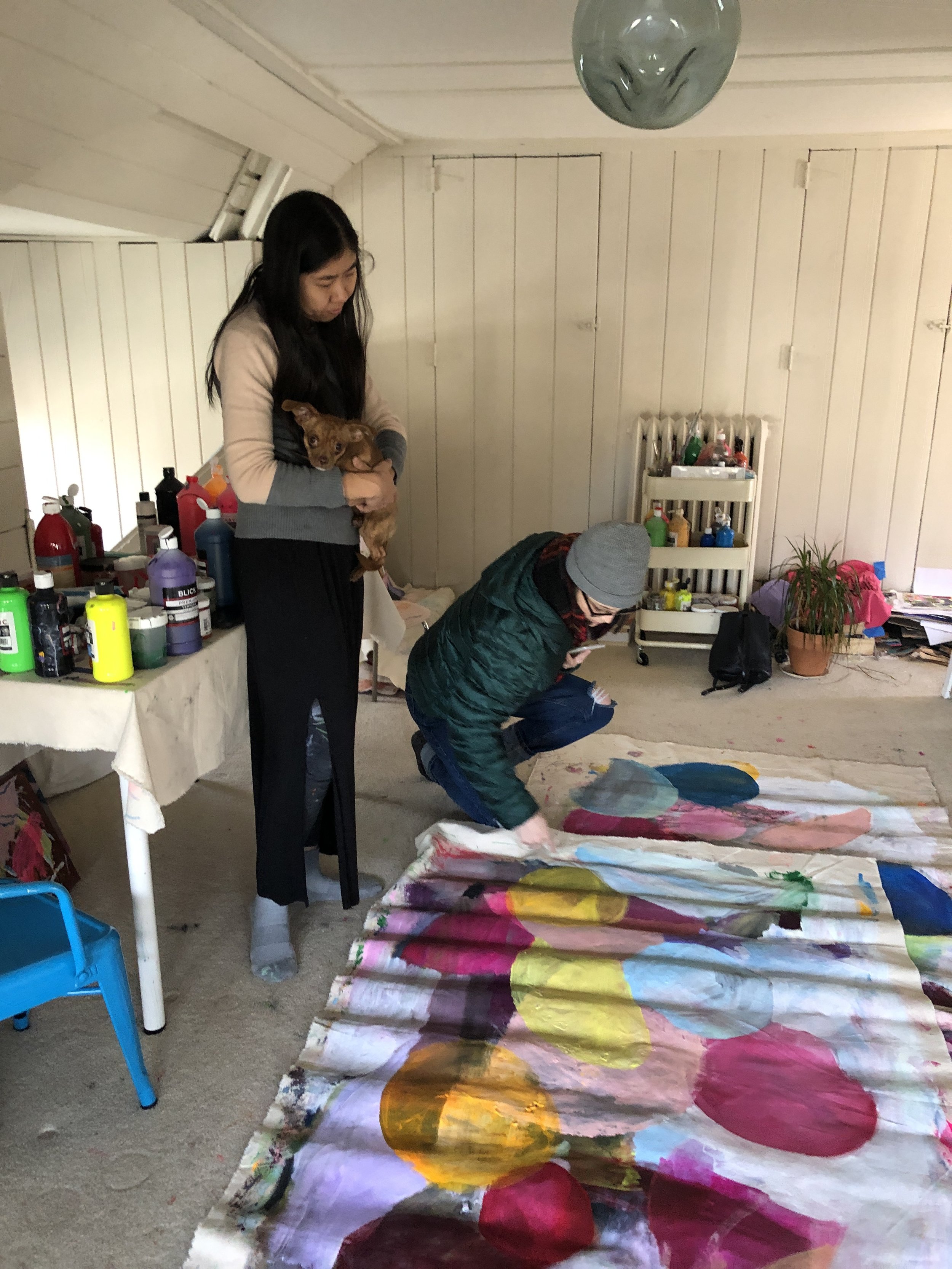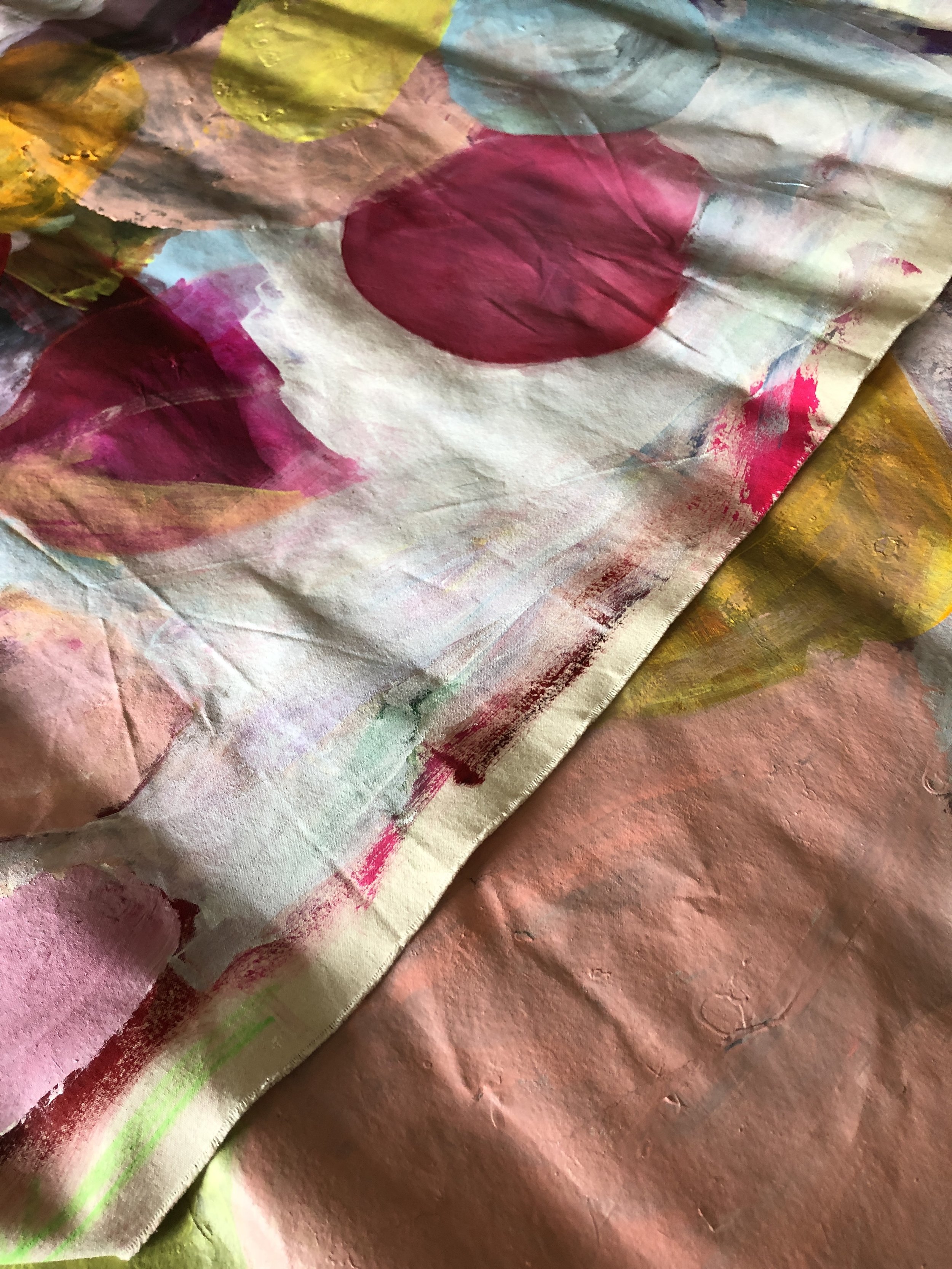WORD:
Wholeness
I wrote this early February, and I think that it summarizes the month well:
In therapy this past week, I couldn't stop crying because there were too many things I know that needs to be processed and talked about...but there's a whole line up of what seems most pressing. I was trying to explain to my therapist that I wanted to focus on coping with race related stress (because it seemed the most urgent - because of how it was settling into my physical body), but as we talk more so many other things get triggered. So many other things that I know I need to address and process, but it's literally impossible to do all of them at the same time.
This morning, I'm thinking about the piece I painted for Diamond this last #TWintersectionalfridays, and how we are holding up all these things. But the things that we are holding up and fighting for aren't all the issues and burdens and problems, but it is our WHOLENESS. We our holding up the fact that we are fighting to see ourselves as whole and beautiful - we are fighting to be seen by others as dignified humans - we are fighting because there's HOPE in insisting to be heard. If we didn't have hope, why would we press on and fight for it?
Especially to all my women of color, it's ok to be tired. It's alot to hold up.
VISUAL:
“You think I blocked you because we “disagreed”? No. I blocked you because you were invalidating my experiences. Because you can’t seem to tell where the language of agreement is inappropriate. You can disagree on matters of opinion. You can disagree where you are relatively as informed as your conversation partner. But if I tell you that black people receive harsher punishments for committing the same crimes as white people, you can’t just disagree. You either don’t know the fact to be true, or you know the statement to be untrue and can disprove it. You can’t “disagree” that I’ve experienced racism when I tell you stories that you weren’t there to witness, just because you don’t think it was a racist instance. Not only does this feel insulting, but it it’s deeply offensive to tell someone that their experiences are invalid. And you don’t seem to care that your words caused someone harm.
You’ve never applied yourself to deeply investigate what racism is, yet you’re telling people who have experienced it, studied it, and work against it on a daily basis that they’re wrong. How would you know? When you go to your doctor, and they tell you something you don’t want to hear, do you tell them you disagree? Do you disregard all of their years of study in medical school to present rebuttals to their diagnoses? You call me arrogant for not listening to you, but have you considered how arrogant it is for you to present your opinions as though they are just as valid as mine, knowing that I’ve lived these things and study these things on a daily basis? ”
My kimono is not your couture
By densho blog // @little_kotos_closet
“Of course this Orientalist love affair with the kimono is nothing new. Since the late 1800’s, the cultural appropriation of the kimono in fashion has had a long and complicated history. Monet’s La Japonaise, The Mikado, and Katy Perry’s “geisha” look, are just a few of the many examples of the West’s fascination with all things Japanese.
But contrary to what Orientalist art and contemporary brands might have you believe, kimonos are not just clothes. They are garments worn for celebrations, sacred ceremonies, and life’s milestones. They are part of our family stories, which for some of us, are the stories of what was left behind and the people who are no longer with us.
My kimonos have been folded and tucked around the bodies of my great grandmother, grandmother, aunt, and mother. They are a part of our family’s heritage and a textured history of my matrilineal line. One day I will pass these pieces down to my own daughter so that she too can wear a garment sewn by her grandmother’s hands. These familial and cultural items have deep, even sacred significance: I wrap my ancestors around me when I wind and cinch my obi about my waist.”
podcast:
Still processing: liars
Description of the episode: “The Jussie Smollett investigation has captured America’s attention — and ours. We take a look at the support for as well as the doubts about Smollett’s claims, and try to make sense of the charge that Smollett staged his own attack. In an era in which personal trauma and victimhood are often leveraged for cultural capital, we consider the long-term repercussions of the Smollett case.”
book:
China Rich Girlfriend
by kevin kwan
Sometimes you just need an easy read, and this one hit the spot. Can’t wait for the third book!
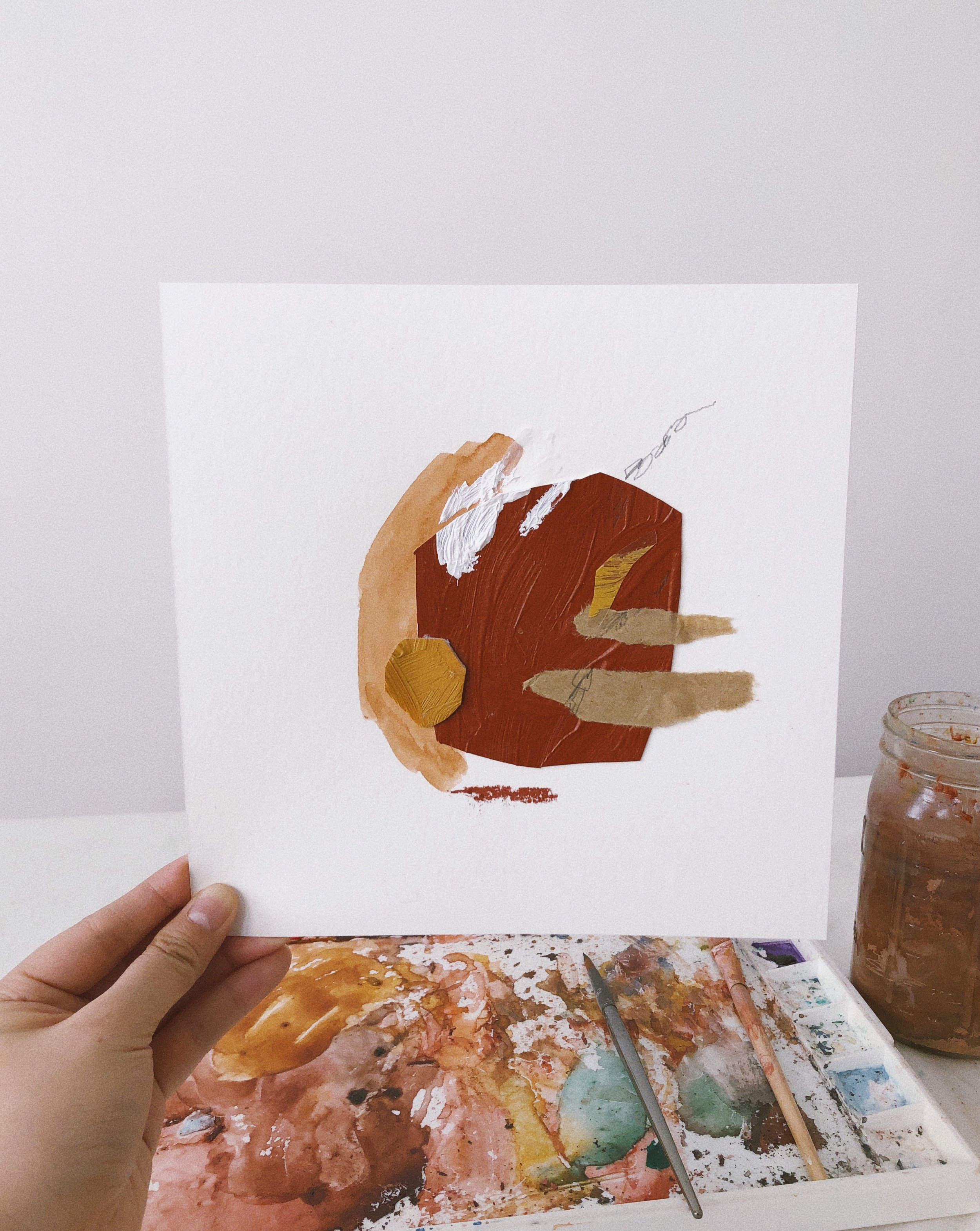
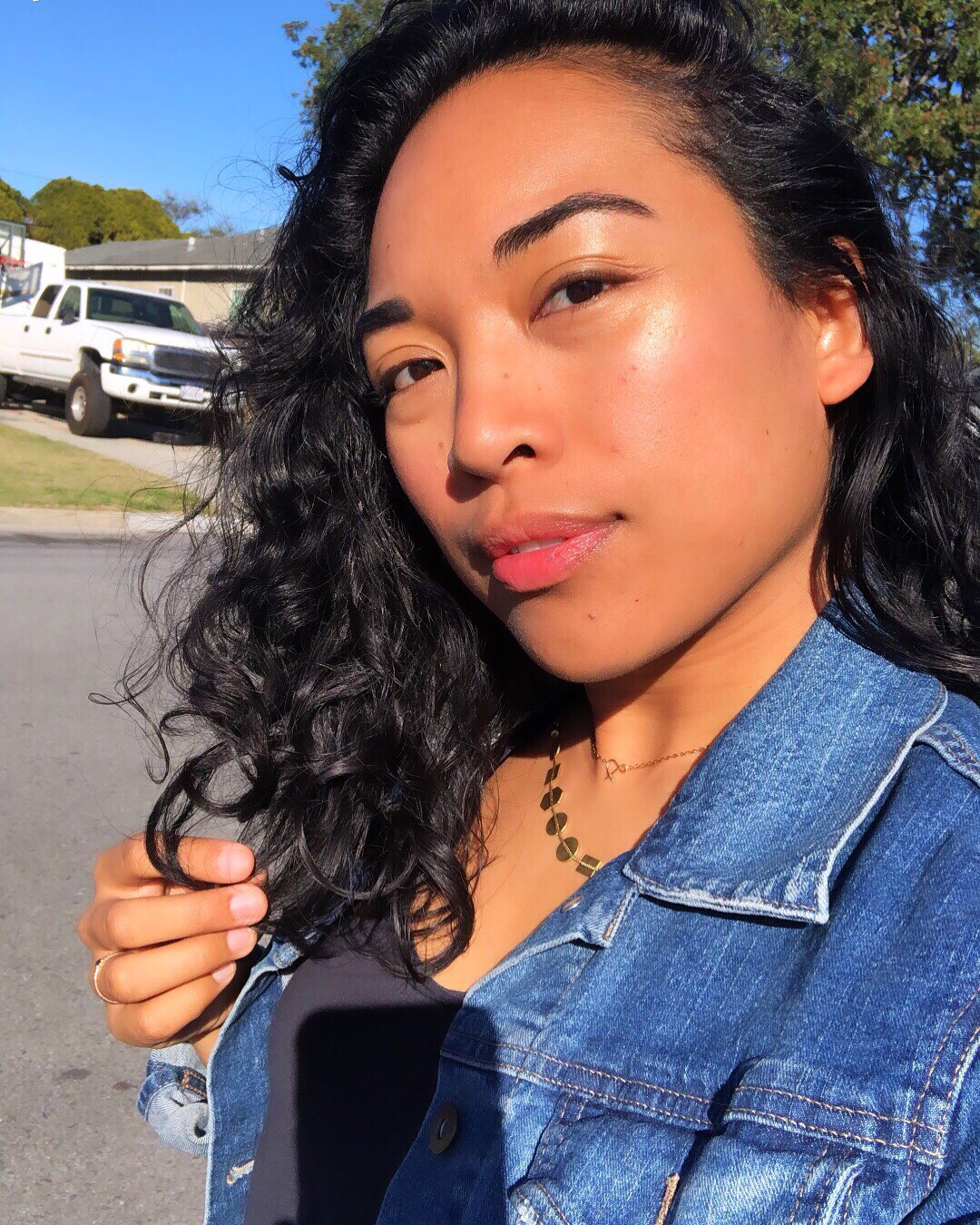
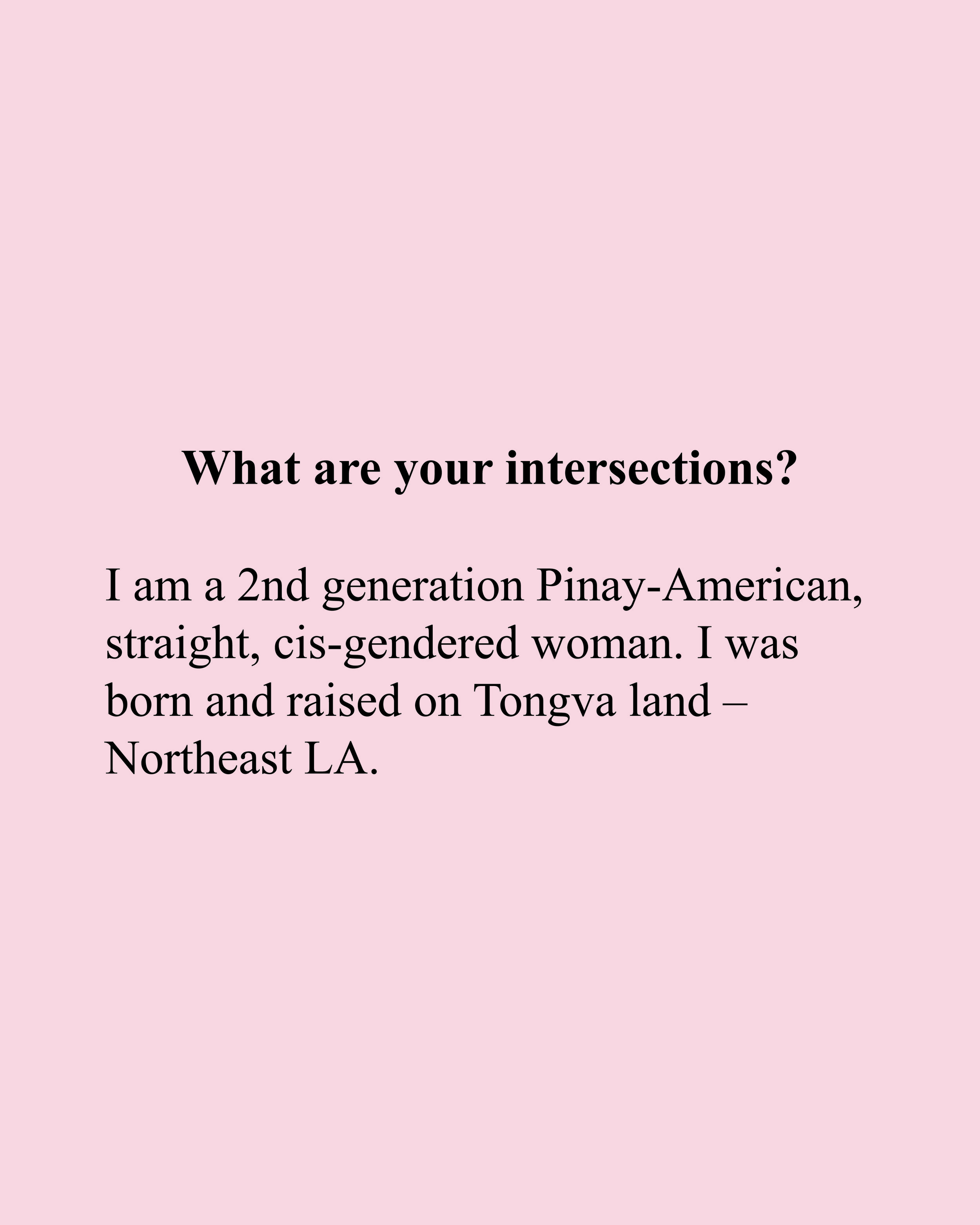
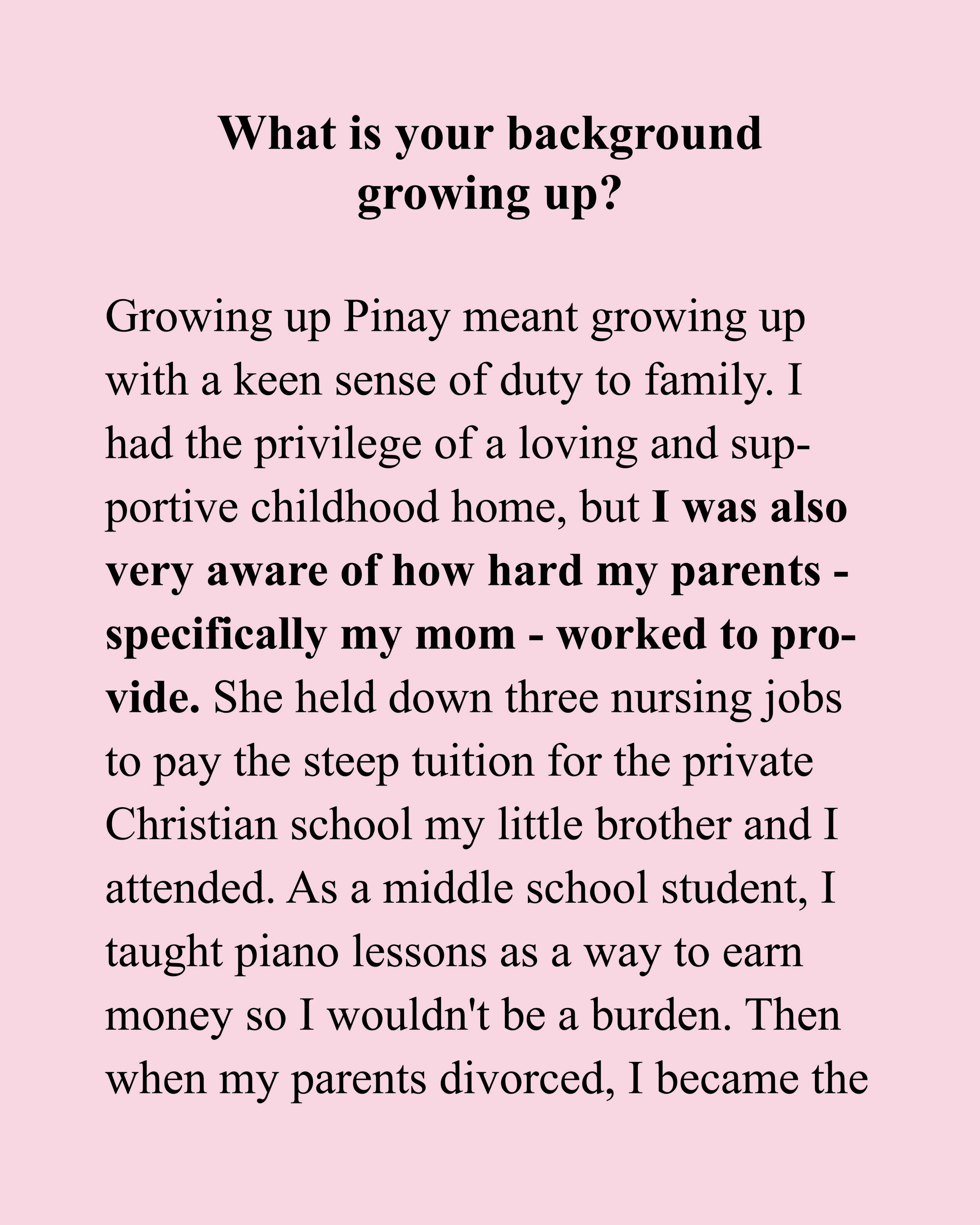
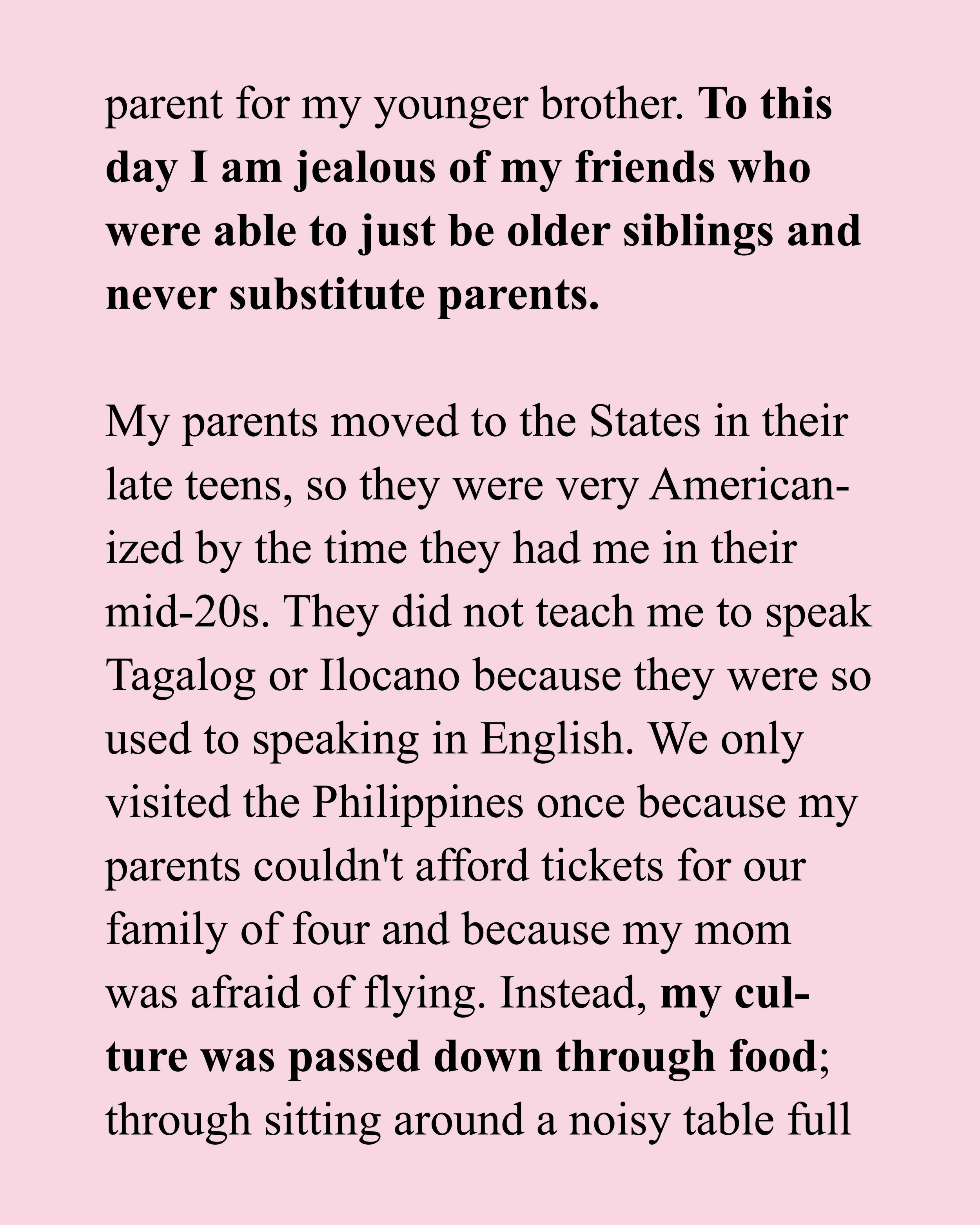
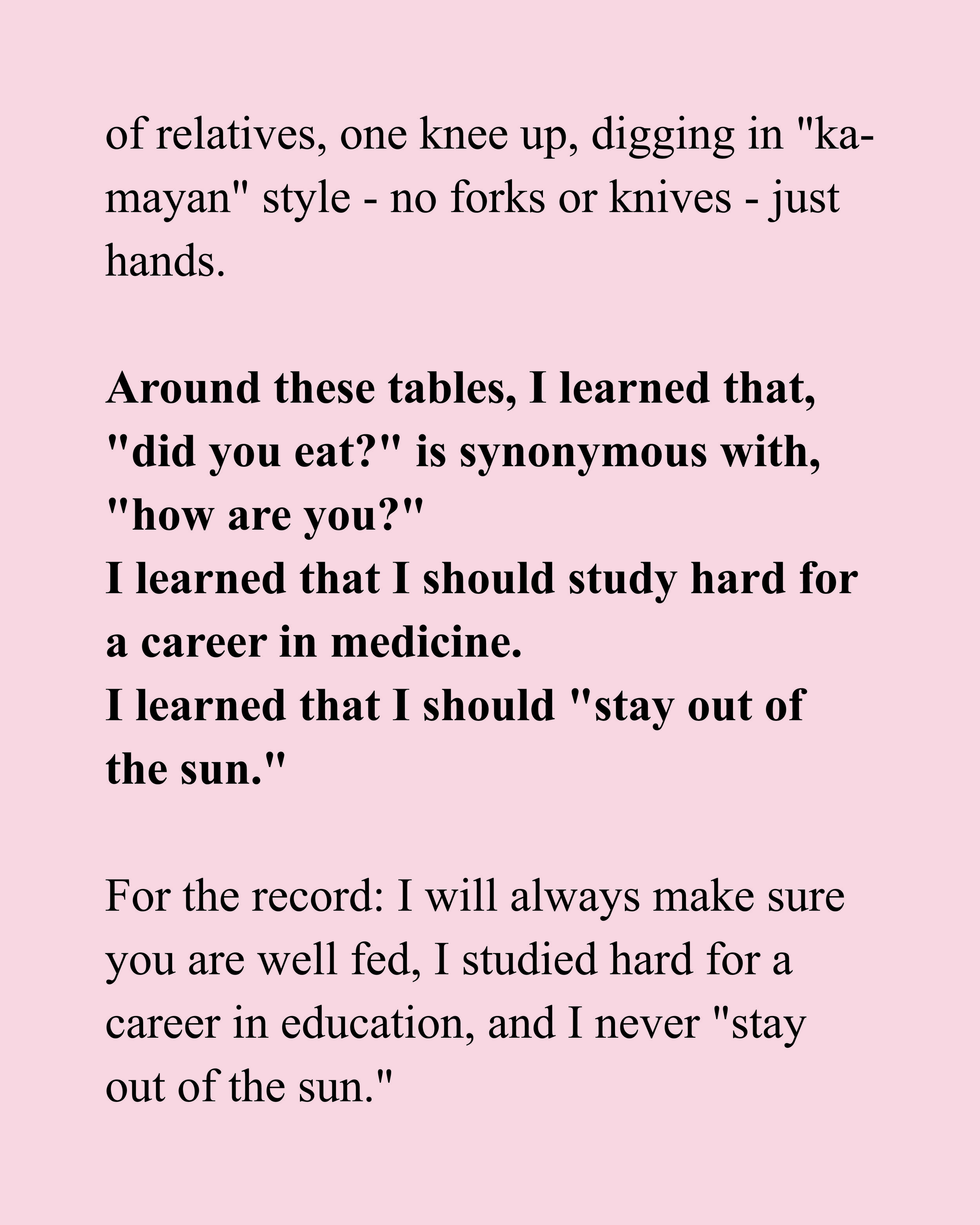
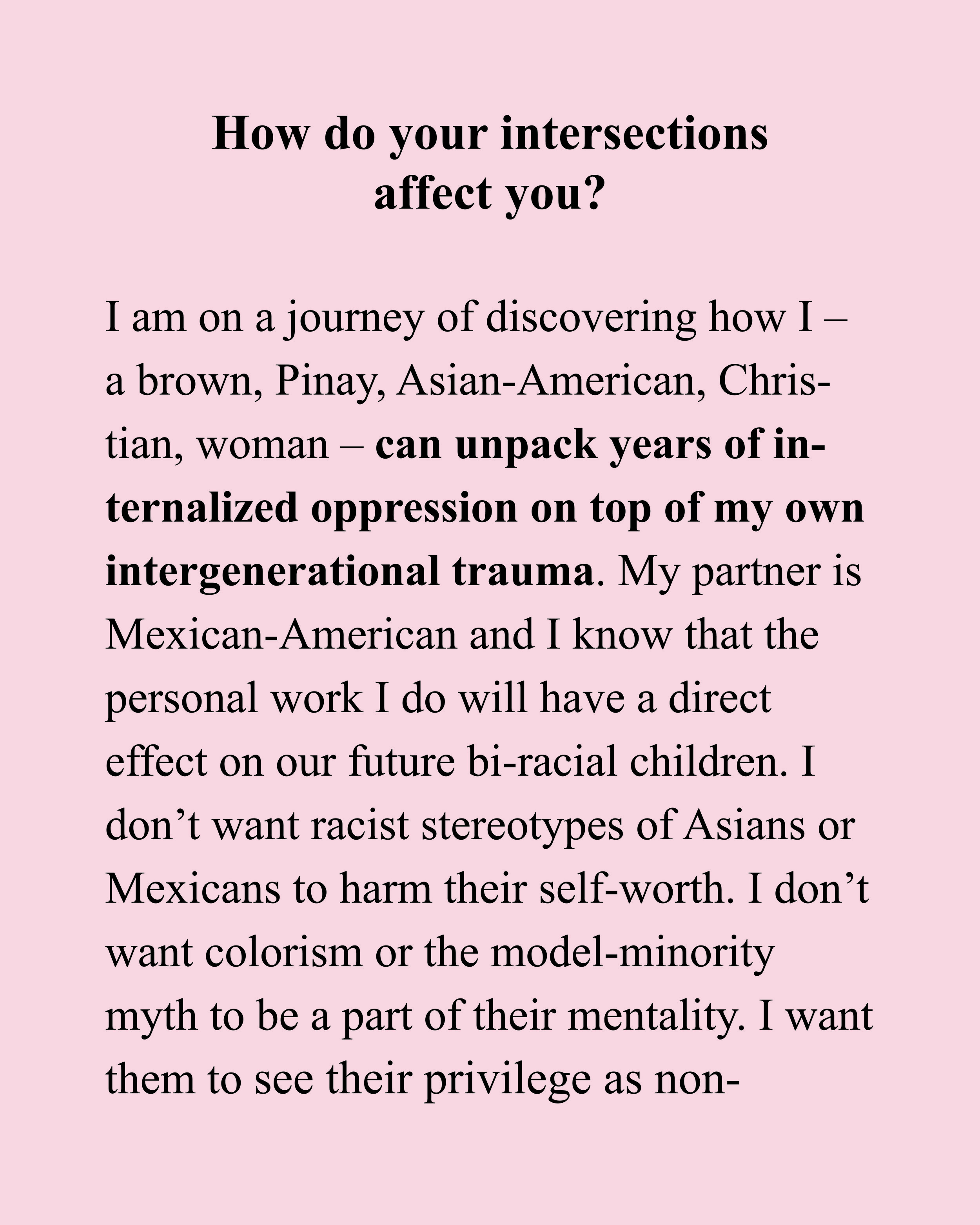
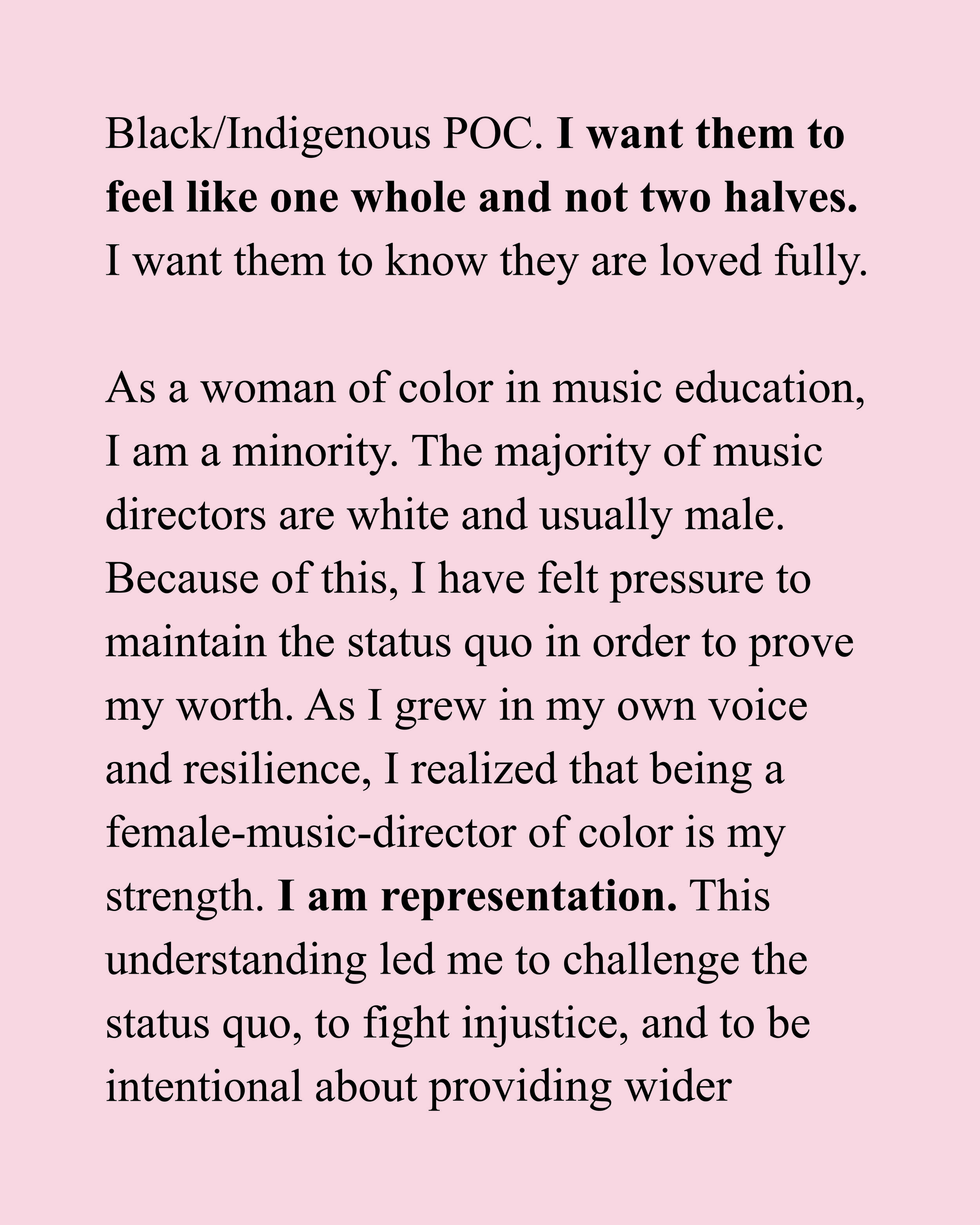
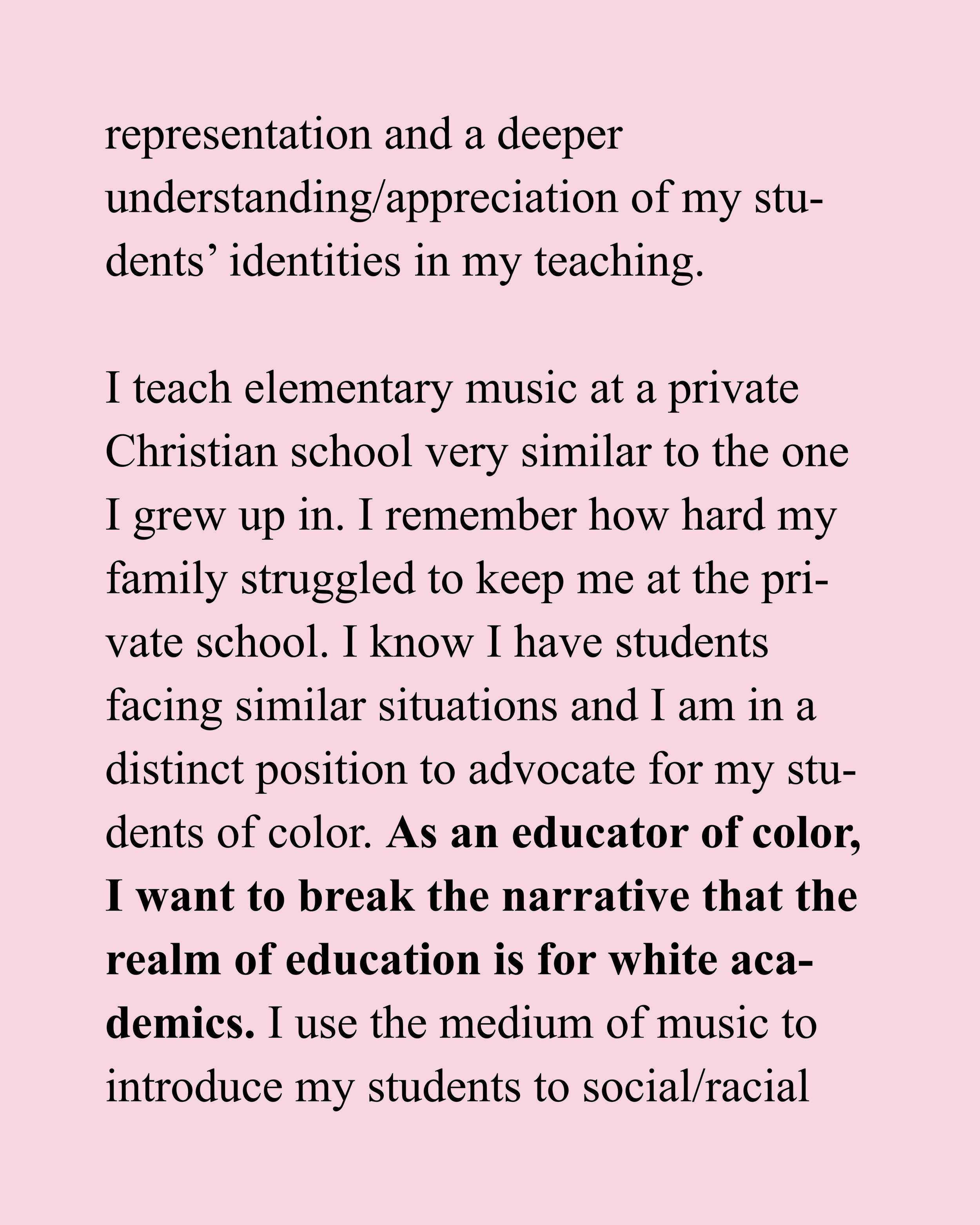
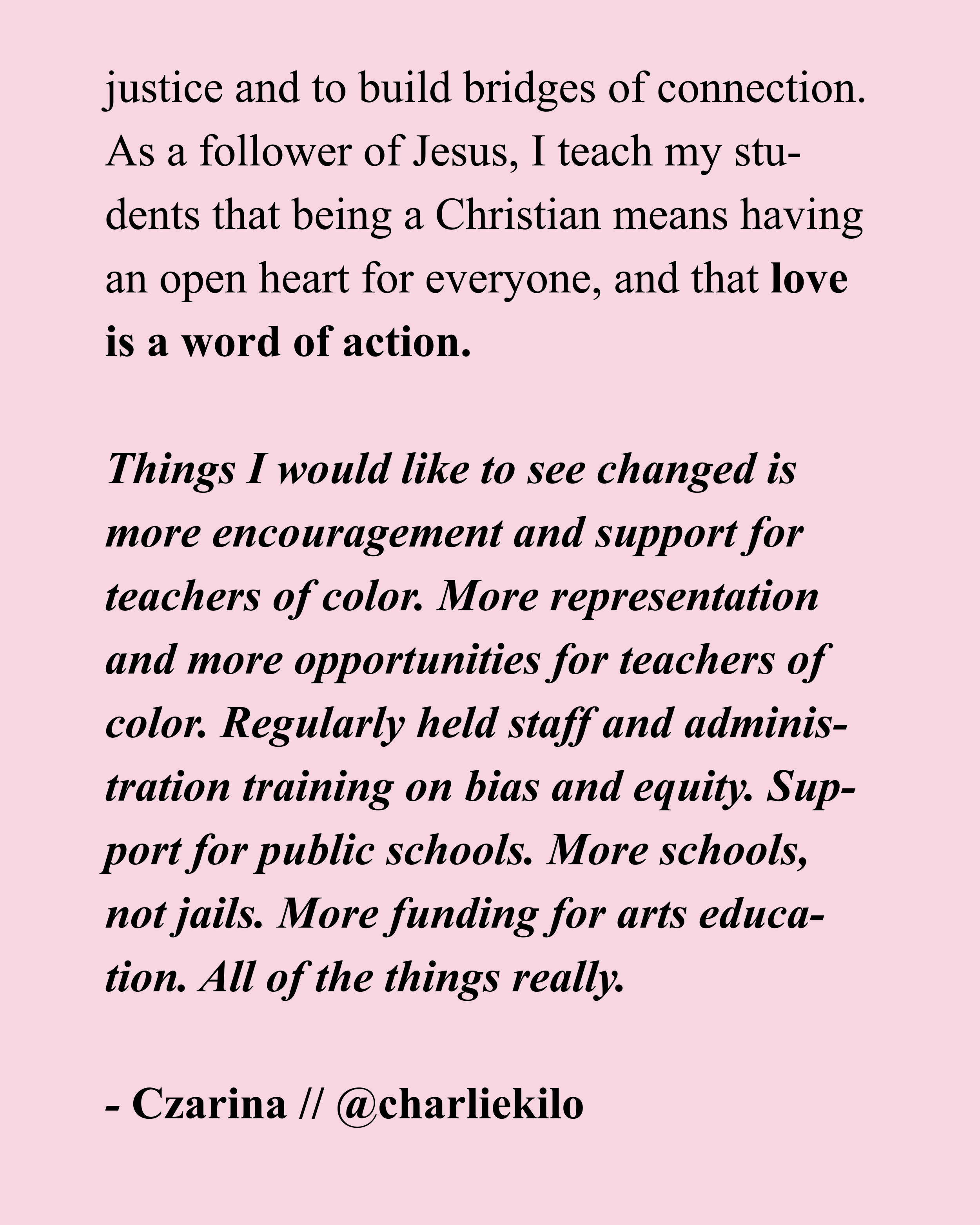
This is what Czarina wrote when I asked her about this statement:
"How I can unpack years of internalized oppression on top of my intergenerational trauma."
The Philippines is a country with a painful history of over 500 years of colonization and imperialism from Spain and the United States. Because of this, whiteness (as a culture and literally) is often seen as a goal.
Colorism is a huge issue throughout Asia, and the Philippines is a great example of how it manifests through a lack of representation of darker skin tones in media, the market for whitening soaps and creams, and in how individuals with darker skin-tones are treated. I am a darker skin-toned Pinay, and I do not have the coveted straight, slick hair that many Asians do. When I was a kid, my family would jokingly call me "dark one" "extra toasted" and "burnt." A boy I dated in high school told me that I looked better with straightened hair than my natural curls, but then a boy I dated in college exoticized my islander looks. Both made me feel objectified. It wasn't until my 20's that I learned to truly embrace my features and the beautiful heritage behind them. Now that I've learned more about my own history as a Pinay-American, and the history of the country I call home, I know that colorism is anti-blackness and therefore racist. Embracing and loving my brown skin (while also spending the privilege I carry as a non-Black POC) is a form of resistance.
In addition to racist colorism, the model-minority myth is another tool of white supremacy that I am trying hard to dismantle. One of the biggest issues I have with this myth is the false expectation that Asians do not rock the boat. Because of colonization, Pilipinx are master assimilators so I grew up not knowing the power of my own voice or the power of my own people. But after learning of people like Gabriela Silang the first Filipina woman revolutionary leader who fought for independence from Spain or Larry Itliong - a farm worker who, with other Filipino farmers, began the Delano Grape Strike and pushed for workers rights in California, I know the myth of the quiet, compliant Asian is the farthest from the truth. As Faith Santilla writes, "Filipinas are no strangers to wielding our own power."
More thoughts on:
intersectional fridays
Gosh. IT IS GIVING ME LIFE! Hearing from such incredible WOC has been so healing for me. It is a lot of work to coordinate it and to make it all come together weekly, but I feel less alone. Others also resonate with the interview deeply, and that’s the dream. Creating connection.
This is what I wrote on February 9 on Instagram:
For #TWintersectionalfridays (my 2019 project), my hope is not only to create space for people's stories to be told. But it is for those who relate to those stories - to feel less alone.
Sometimes we don't have the words to ARTICULATE how we feel or what we went through. Most of my life, I feel like I was in that space...I didn't have the vocabulary to make sense what was happening. Sometimes we might have the words but we don't have the energy to process through it all and forget about writing it down!
And that's where reading and sharing someone else's articulation of their experience is POWERFUL. Because we don't all have to be in that place.
That feeling of words/emotion/color/movement just hitting this spot (the spot where you just know that experience in the most visceral way) is priceless. To have your humanity affirmed should be available to everyone, but that's not reality. The hope is for us to lean in to tell your truth and to also listen to others' stories when you don't have the energy to tell your own.
Organization:
The conscious kid
I really appreciate and love this organization, and I learn from their instagram all the time. The image below is one that I’ve seen in different forms. I like this one a lot, because it shows how the more “minor” things attribute to systemic and violent racism.
The Conscious Kid is an education, research and policy organization dedicated to reducing bias and promoting positive identity development in youth. We partner with organizations, children’s museums, schools, and families across the country to promote access to children’s books centering underrepresented and oppressed groups.
AOKI - a humble beginning
Upcoming show on march 31st
I got to visit two artists in February - Amber Martin and Benz Amataya - on behalf of AOKI. I am so in awe of their creativity, drive, and childlike wonder. AOKI is having our first public arts event on March 31st 3:00-6:00pm. I invite YOU to come to our art show! Tickets are FREE - RSVP HERE.
the start of
womxn taking space
Near the end of February, Eliana Blancas and I started an online conversation and this is how I started it:
“For the past two years, I have been ultra aware and conscious of how my body and presence is treated - not only as a womxn, but also as a womxn of color. The way that things are defaulted (white cishet male), I have made myself small and in other cases been made small. I know the feeling of taking up space and feeling empowered by others around me. I also know the feeling of taking up space and feeling the disapproval in the room - and then going home and crying because of the lack of space for me.
Eliana Blancas (an amazing community organizer and chef) and I are hosting online conversations in honor of International Womxn’s Day on March 8. (WOMXN: self identifying womxn including transgender woman, gender fluid / gender non-conforming.) We want to hear stories and conversations of how we can celebrate womxn, empower womxn, create space for womxn. Especially in line with #TWintersectionalfridays, I’m interested in stories of how black and non black WOC are forced to be made small from birth - and how it is to occupy and FULLY EMBODY yourself as multidimensional human..In the next two weeks, I will be sharing stories and thoughts about taking space as a womxn. Please join me and use the hashtag: // #womxntakingspace //”
Next month, I will be sharing how the conversation went and also about the houseshow that Eliana and I hosted in lieu of this concept.



